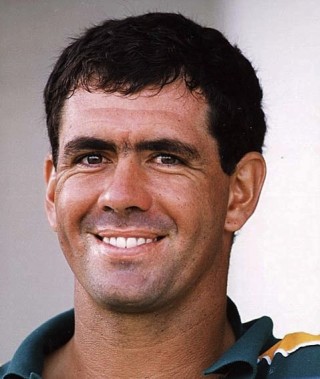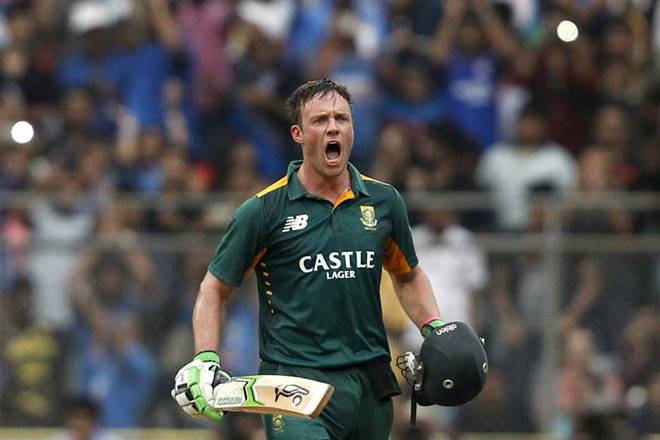
It was April 2000. I was twelve when Hansiegate broke out. I remember arguing about how Hansie Cronje was not guilty with my English teacher. I was fighting back tears, not caring that I was creating a spectacle in class. I remember brushing off my friend who put an arm around my shoulder asking me to calm down.
I couldn’t come to terms with the fact that Hansie had thrown games away in favor of money. All the while I was hoping it was a bad dream, and that the Delhi Police was just trying to tarnish the image of a beloved cricketer out of jealousy.
“They are just jealous that Hansie is a successful captain. He’s innocent. You’ll see,” I’d tell my friends between sobs.
I was blinded by my devotion toward Hansie, what was not to love about him? He was ordinary as a cricketer, but he was astute, likable and a team man. Hansie was a South African son of the soil revered by his people. Until the match-fixing scandal broke out.
The concept of match-fixing was new to me. I could never understand why a successful icon of the game would decide to lose games for money. Wasn’t he already earning enough?
As a twelve-year-old, you don’t understand what betrayal feels like. You feel let down when your parents don’t show up for your school performance, you feel dejected when you don’t get the chocolate ice-cream they promised. But betrayal, for a twelve-year-old, is a heavy emotion. When the King’s Commission pronounced Hansie as guilty and banned him for life from playing cricket, I realized what betrayal felt like.
Fans of the South African cricket team are used to feeling disappointed. In June 1999, the year before Hansie’s conviction, South Africa came heartbreakingly close to sealing a spot in the world cup final for the first time. They were led fabulously by Hansie until then. I consoled myself saying that Hansie will lead us to a world cup in South Africa in 2003.
Hansie died in June 2002 in a plane crash. He was the only passenger aboard the small aircraft.
Even after his death, until the age of 20, I’d argue on online cricketing forums of how Hansie was brave enough to accept he made a mistake. I’d be ridiculed by anonymous commenters that he had to accept his mistakes because he was caught with his pants down, stupid.
After the match-fixing scandal broke out, it became tough for me to start following South African cricket. The team would never be the same for me. I started to look at every loss with suspicion and every player with doubt. What if there was a rogue player in the team who was losing on purpose? Will there ever be a player of Hansie’s stature, his cunning, his controversies notwithstanding?
Luckily, South Africa had an influx of inspiring, honest, and tough-as-nails cricketers. The legend of Jacques Kallis was on the rise. Shaun Pollock, the senior statesman had seen his team through various ups and downs, but still held on. There were the mercurial Makhaya Ntini and Mark Boucher; and the little-known trio of Dale Steyn, AB De Villiers and Hashim Amla who were making their mark on the team. And then there was Graeme Smith. A mountain of a man, one to never back down from a fight. He captained South Africa through a purple patch of not having lost an overseas series for nine years.
My faith and love for the team were restored. In the loss of one tainted hero, South Africa had found a dozen more.
*********

Australia captain Steven Smith’s admission to ball-tampering let down the whole of Australia, with even the prime minister calling for his head. Cricket forums on Reddit were filled with angry and dejected Australian supporters who couldn’t believe that a young player, touted to be a modern day legend would indulge in such tactics.
While the Australian public was fuming over the embarrassment that the national team brought them, there was a feeling of schadenfreude among current cricketers, commentators, and the general public who had a dislike for the brand of cricket that Australia plays under the guise of hard but fair. From verbally assaulting opponent teams to as recent evidence suggests, going as far as even physically assaulting a player when paid back with the same coin, Australia had done itself no favors by producing boorish cricketers who brought out the worst in their opponents.
As the controversy engulfed the cricketing world, threatening to take away another promising cricketer, I couldn’t help but think of all the 12-year-olds Steven Smith and his team had let down. This letter from the parent of a pained and confused boy brought back my memories of how I tried dealing with Hansie.
Ball tampering cannot be compared with match-fixing, in fact, it has been advocated by several cricketers, and is a practice that is secretly being followed across cricketing divisions. While match-fixing is taking money from bookies to lose a game, ball tampering is changing the nature of the cricket ball so as to assist the bowler which will help them win a game; but it is a practice that is still against the spirit of the game.
What makes it worse for Steve Smith and co. was that it wasn’t a move made out of desperation, but something that was planned, as Smith put, “by the leadership”. And what has rightly earned them the label of cheats is that they lied to the umpires when confronted about it.
The aftermath of this controversy could see promising careers cut short, reputations getting tarnished, but its most devastating effect will be on the kids who idolize Steve Smith.
Smith’s image now cannot be reversed. He will forever have to live with the tag of a cheat even if he wins the world cup for his country. These kids will probably lose their faith in heroes, even if a promising one comes up. Once bitten twice shy, after all. But eventually, they will give in. They will heal again, and they will rejoice when they find a new hero.
That’s the beauty of sport; it gives us new heroes, idols, and gods. But most importantly, it gives us something that cannot be measured: hope.
Image source: https://maroelamedia.co.za/nuus/hansie-cronje-nadoods-aangekla/
https://www.mid-day.com/articles/sandpaper-gate-why-should-we-believe-steve-smith/19243184


